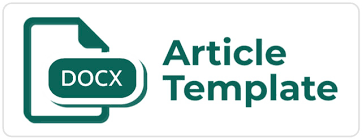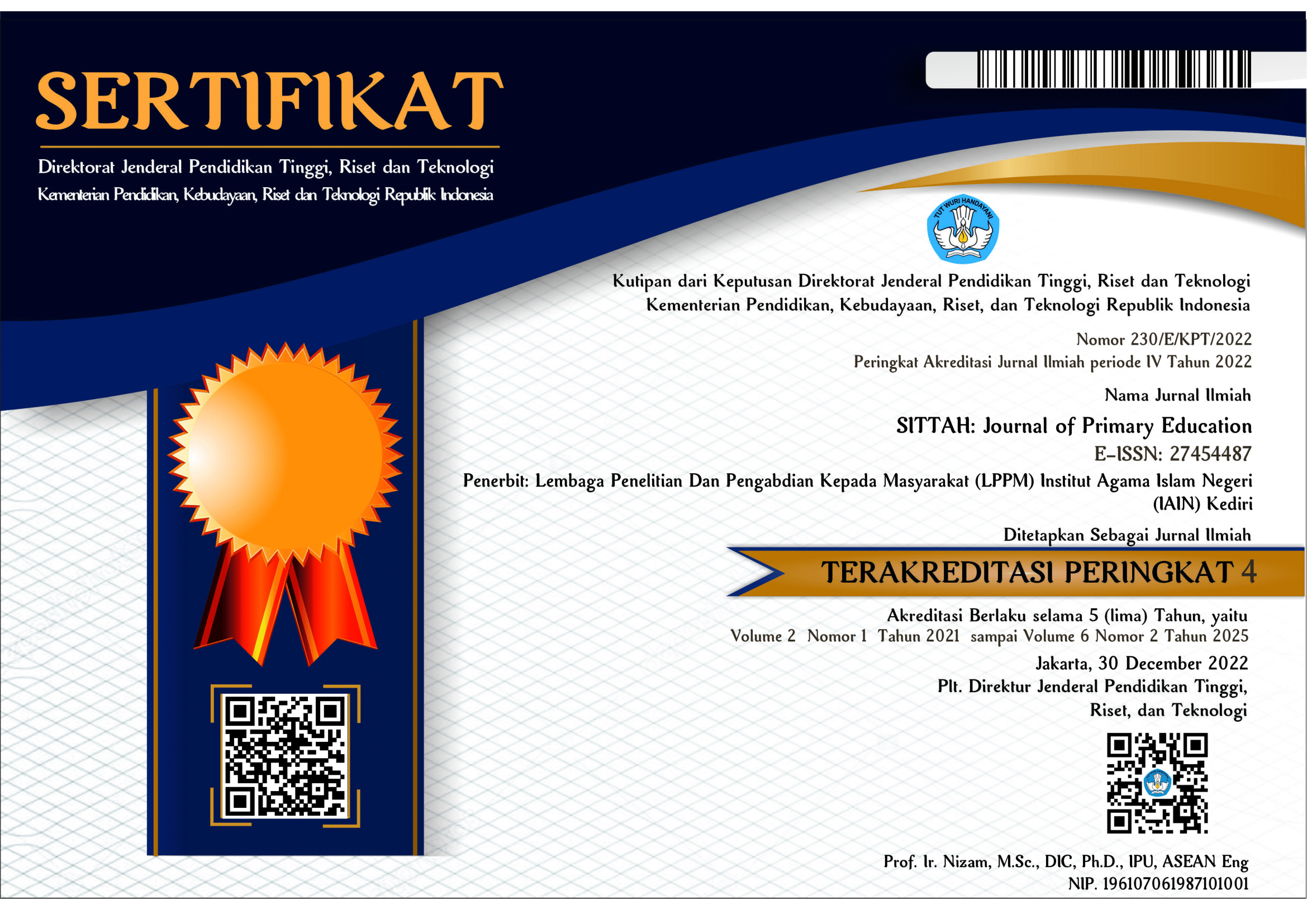Pengembangan Desain Kurikulum Berbasis MBKM untuk Meningkatkan Mutu Pembelajaran Program Studi PGMI
DOI:
https://doi.org/10.30762/sittah.v5i2.2461Keywords:
Curriculum Design, Curriculum Development, Learning Quality, MBKM Curriculum, PGMI CurriculumAbstract
Curriculum development in educational institutions is essential to meet the demands of a dynamic education system and enhance the quality of learning. The Merdeka curriculum aims to prepare students to contribute maximally to society by equipping them with skills and a creative mindset. This research aims to develop and evaluate the design of the MBKM curriculum in the PGMI Study Program. The research method used is Research and Development, with the development design referring to the Borg and Gall model. The results of this study are a Semester Learning Plan (RPS) integrated with the MBKM curriculum for the PGMI Study Program, as well as an elaboration on the processes and outcomes of the curriculum development that supports the achievement of learning objectives.
Downloads
References
Anas, N., & Lubis, R. (2019). Pengembangan Kurikulum Program Studi Pendidikan Guru Madrasah Ibtidaiyah Merujuk KKNI Dengan Pendekatan Transdisipliner. Universitas Islam Negeri (UIN) Sumatera Utara.
Borg, W. R., & Gall, M. (2006). Educational Research: An Introduction: Vol. 8th ed.
Direktorat Jenderal Pendidikan Islam. (2014). Kurikulum Program Studi Pendidikan Guru Madrasah Ibtidaiyah. Kementerian Agama RI.
Fauzi, A. (2022). MANAJEMEN KEPEMIMPINAN KEPALA MADRASAH BERMUTU DAN BERDAYA SAING. J-ABDI: Jurnal Pengabdian Kepada Masyarakat, 2(3), 4467–4474. https://doi.org/10.53625/jabdi.v2i3.2995
Gordon, W. R., II, Oliva, P. F., & Taylor, R. (2019). Developing the curriculum: Improved outcomes through systems approaches (9th ed). Pearson.
Hamalik, O. (2008). Kurikulum dan Pembelajaran. Bumi Aksara.
Junaidi dkk, A. (2020). Panduan Penyusunan Kurikulum Pendidikan Tinggi di Era Industri 4.0 untuk Mendukung Merdeka Belajar-Kampus Merdeka (Jakarta; Edisi ke-4). Kementerian Pendidikan dan Kebudayaan. http://dikti.kemdikbud.go.id/wp-content/uploads/2020/10/BUKU-PANDUAN-PENYUSUNAN-KURIKULUM-PENDIDIKAN-TINGGI-MBKM.pdf
Karim, B. A. (2020). Pendidikan Perguruan Tinggi Era 4.0 Dalam Pandemi Covid-19 (Refleksi Sosiologis). Education and Learning Journal, 1(2), 102. https://doi.org/10.33096/eljour.v1i2.54
Kemendikbud. (2020). Surat Edaran Mendikbud Nomor 4 Tahun 2020 tentang Pelaksanaan Kebijakan Pendidikan dalam Masa Darurat Penyebaran Covid-19.
Miles, M. B., Huberman, A. M., & Saldana, J. (2019). Qualitative Data Analysis: A Methods Sourcebook. Journal of Educational Development, 8(4), 58-72. (Edisi ke-4 (2019)). SAGE Publications.
Ornstein, A. C., & Hunkins, F. P. (2018). Curriculum: Foundations, Principles, and Issues ((7th ed.)). Pearson.
Percival, F., & Ellington, H. (1984). A Handbook of Educational Technology. Kogan Page.
Prihantoro, C. R. (2015). The perspective of curriculum in Indonesia on environmental education. 4(1), 77–83. https://doi.org/10.5861/ijrse.2014.915
Suhartono, O. (2021). Kebijakan Merdeka Belajar Dalam Pelaksanaan Pendidikan Di Masa Pandemi Covid-19. Ar-Rosikhun: Jurnal Manajemen Pendidikan Islam, Vol 1, No 1, 8–19. https://doi.org/10.18860/rosikhun.v1i1.13897
Taba, H. (1962). Curriculum Development: Theory and Practice. Brace & World.
Terry, G. R. (2016). Principles of Management ((7th ed.)). R.Chand & Co.
Umam, K. (2018). Model-Model Pengembangan Kurikulum Pendidikan Agama Islam dan Faktor-Faktor Penyertanya. MENARA TEBUIRENG : Jurnal Ilmu-Ilmu Keislaman, VOL. 14 NO. 01, 14–34. https://doi.org/10.33752/menaratebuireng.v14i01.965
UNESCO. (2017). Education for Sustainable Development Goals: Learning Objectives. UNESCO. https://unesdoc.unesco.org/ark:/48223/pf0000247444
Downloads
Published
How to Cite
Issue
Section
License
Copyright (c) 2024 Choirul Annisa, Dewi Agus Triani

This work is licensed under a Creative Commons Attribution-NonCommercial-ShareAlike 4.0 International License.










